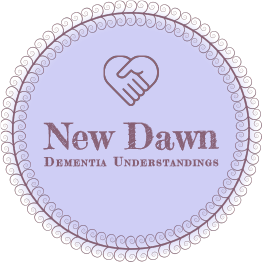WHY WE NEED FUNDAMENTAL DEMENTIA AWARENESS EDUCATION FOR ALL
What happens when we, as a society do not provide fundamental Dementia Awareness training ? https://youtu.be/pPucNC2AGuU is what happens. This video is disturbing. It captures the arrest of an elderly woman with Dementia, walking to her house with a small bouquet of flowers in her hand. According to News reports she was accused by Walmart of trying to steal a beverage and detergent, and though she offered to pay for the items, the police were called and intercepted her walking down the road to her home. She was taken to the ground and suffered a dislocated shoulder and a broken arm from this "take down" apprehension of a fragile, cognitively disabled woman. It is alleged that she was made to wait hours, while screaming in pain, for medical attention. It was also reported that the police department involved will commence Alzheimer's Awareness training for its Officers. Basically, this approach is akin to "closing the barn door after the horse got out". We can point fingers at this Police Department and the Officers involved, but the beginning of a solution to the issue at hand is fundamental Alzheimer's and Dementia public awareness. How is it that Officers who are trained to de-escalate an armed hostage situation didn't have a clue about how to interact with a person with cognitive challenges? And Walmart? What does your Walmart employee Dementia Awareness training look like? Those involved in this incident can all claim they weren't aware the woman had Dementia disabilities, and therein lies the problem.
Persons living with the challenges and disabilities of Dementia are an integral part of our society. We have, rightfully so, taken many steps towards inclusion and accessibility for those living with other types disabilities. What are we doing to provide access to society for those with Dementia disabilities? Some might argue that in the interest of safety, persons with cognitive disabilities should be placed in a "secure environment", IE: behind a locked door with no access out. If our society had a better understanding of the triggers and challenges and were inclusive of those with cognitive disabilities, it would enable them to live their lives as valued members of our communities instead of being locked up, with the familiarity of the life they've lived taken away. It is NOT my intention to criticize the many Long Term Care Administrators, Staff, and Memory Care Communities who work hard and with compassion to "keep people safe". To you, my sincere thanks for all you do. We've built upon an established model of Dementia Care that needs to have the foundations checked for cracks, and the blueprints assessed for improvements. Let's advance our understanding of the human needs of those living with cognitive impairment through education and training in advance of a tragedy, not after it occurs.
